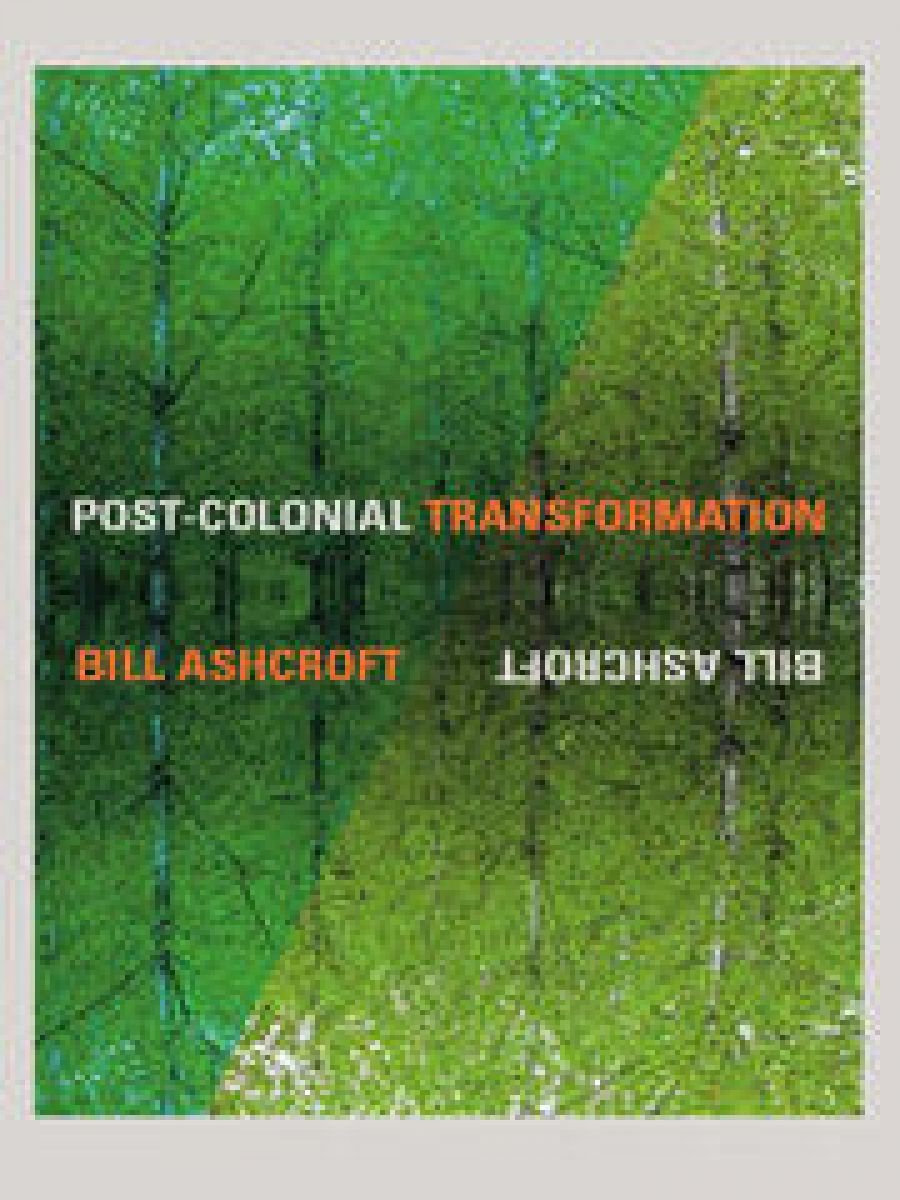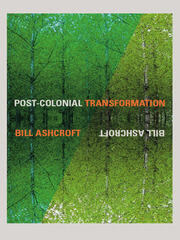
- Free Article: No
- Contents Category: Non-fiction
- Review Article: Yes
- Article Title: Post-Colonial Veranda
- Online Only: No
- Custom Highlight Text:
Those readers who were sympathetic to the arguments in The Empire Writes Back (1989) by Bill Ashcroft et al., will experience in Post-Colonial Transformation the pleasures of engaging with a reinvigorated friend. For others, like this reviewer, who found this influential earlier volume both theoretically and politically troublesome, Ashcroft’s new book will provoke familiar objections.
- Book 1 Title: Post-Colonial Transformation
- Book 1 Biblio: Routledge, $50.60 pb, 249 pp
- Book 1 Cover Small (400 x 600):

If The Empire Writes Back looked to many like an attempt to market the old wine of ‘commonwealth studies’ in new ‘post-colonial studies’ bottles, Post-Colonial Transformation repackages the same theoretical product under a new, edgy cultural studies label. And, once again, Ashcroft’s enticing mix of Husserl and Vico, gas stations in Uganda and Rambo T-shirts on Lebanese militiamen does disappointingly little to modify the unsustainable premises of his earlier work. My objections, let me hasten to add, are not about the internal merit of this book. Ashcroft’s work is consistently lucid, coherent, learned and stimulating. But the politics of his critical endeavour give serious pause.
In Post-Colonial Transformation, Ashcroft reiterates his disaffection with all forms of oppositional politics, whether they are organised around the axes of nation, race, class, or gender. In so doing, he takes his cue (again and again) from the old deconstructive maxim that the ‘simple oppositionality’ of most so-called postcolonial struggle ‘locks it into the very binary which Europe established to define its others’. Thus, all those peoples who simply rejected as unacceptable the civilisational, racial, linguistic, cultural claims of empire suffered (still suffer) from an unrecognised discursive naiveté. Far better, then, in the interests of discursive complexity, to have chosen the rarefied theoretical tactics of ‘interpolation’ or ‘transformation’.
Ashcroft’s guide on how to be postcolonial and ‘transformative’ is elaborated in nine overlapping chapters dealing, variously, with notions of belonging, home, territory, history, and geography in the wake of colonialism. And in each case we are advised that struggles for autonomy and self-assertion are likely to be meaningful only if they involve ‘not simply the insertion of a contestory voice, a different version, or a radical perspective ... but an entry into the discourse which disrupts its discursive features and reveals the limitation of the discourse itself’.
There are three main problems with this perspective. First, while there is much to recommend in the view that cross cultural transformation was a necessary (even a radical) consequence of the colonial encounter, Ashcroft’s categorical objection to resistance or opposition in every circumstance takes the power of saying ‘no’ out of the space of the political. It is impossible to conceive of the end of colonialism in India without Gandhi’s historic demand, in 1942, that the British simply ‘Quit India’. So, too, it would be unbearable to inhabit a world where a certain theoretical bias against contestation prevented us from refusing, resisting and opposing sexual, racial or gender discrimination.
Second, there is something profoundly restrictive in Ashcroft’s insistence that ‘writing’ is the ultimate site of post-coloniality and that, moreover, only when it is a hybridised ‘writing back’ to empire. Needless to say, this claim entirely disqualifies the historical contribution of all those countless nonliterate, anticolonial activists committed, in deed and action alone, to the political autonomy of Asia and Africa. In addition, this position exalts the imperial metropolitan centre as the sole and privileged addressee of all postcolonial literature.
Third, and finally, insofar as Ashcroft effectively canonises the aesthetic of postcolonial ‘transformation’, consistently celebrating it as the richest variety of literary discourse available, his position comes dangerously (if inadvertently) close to becoming an alibi for imperialism itself. At the end of this book, one might well be seduced into thinking that, if nothing else, European colonialism was very good for non-European literatures.
To a large extent, the faults of Post-Colonial Transformation are endemic within postcolonial studies. For too long, students and scholars of the field, this reviewer included, have enjoyed the luxury of speaking in theoretical abstractions about very specific and particular experiences. The result is an increasingly reductive and levelling discourse, which urgently needs to supplement its predilection for metaphoricity with a renewed attentiveness to the archive. It is time to take stock when an eminent theorist such as Ashcroft feels able to recommend the interstitial ‘veranda’ as a more appropriate ‘space of post-colonial habitation’ than the bounded postcolonial nation.


Comments powered by CComment